Being a sibling to a neurodivergent person can be challenging. As parents have a lot on their plate with the ND sibling, the neurotypical one can often get overlooked. Research shows that adolescents who have a neurodivergent sibling have more stress and anxiety. This can be true for younger children as well, as shown by the story we’re covering here.
In it, a 12-year-old daughter felt a lack of support from her parents when her neurodivergent brother ate the cupcakes that were meant for her birthday at school. Upset and not knowing what to do, the girl reached out to her aunt for help. And while she did help, she also said something that people online called her out for.
A neurodivergent brother ate the cupcakes that were meant for his sister’s birthday at school
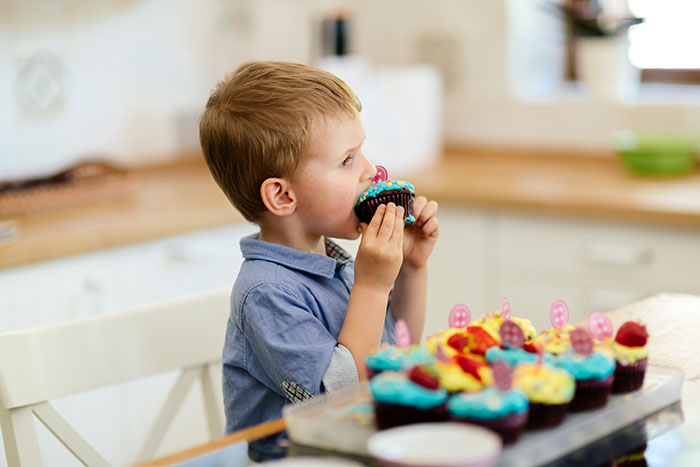
Image credits: nd3000 (not the actual image)
The girl was furious and asked her aunt for help, who told her to cut her parents some slack, as they were having a hard time as is
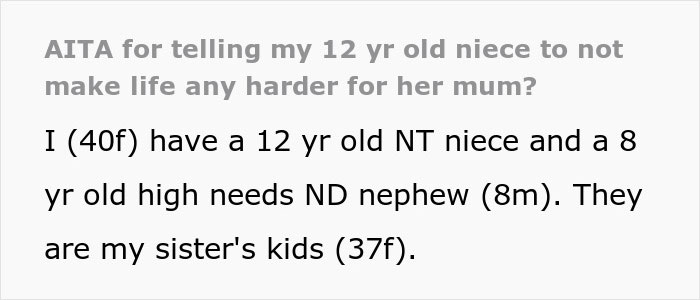
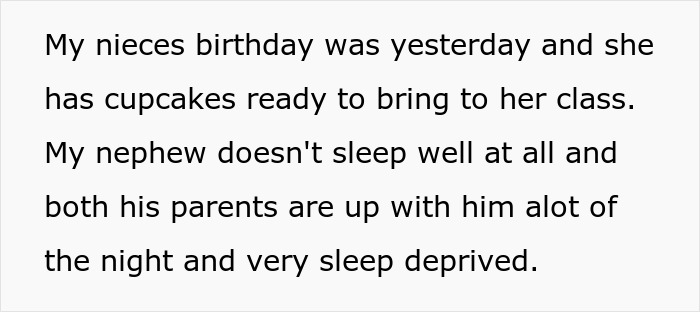
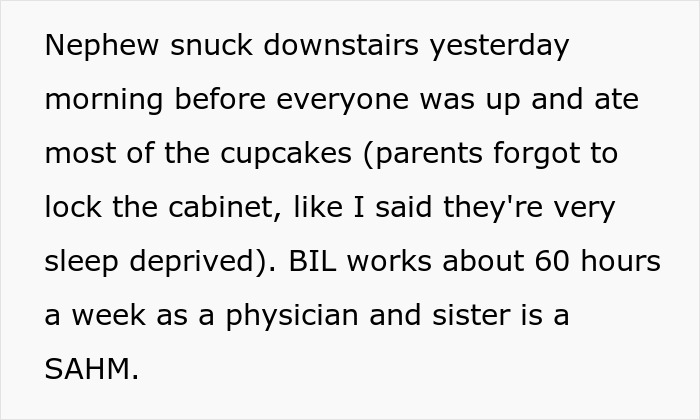
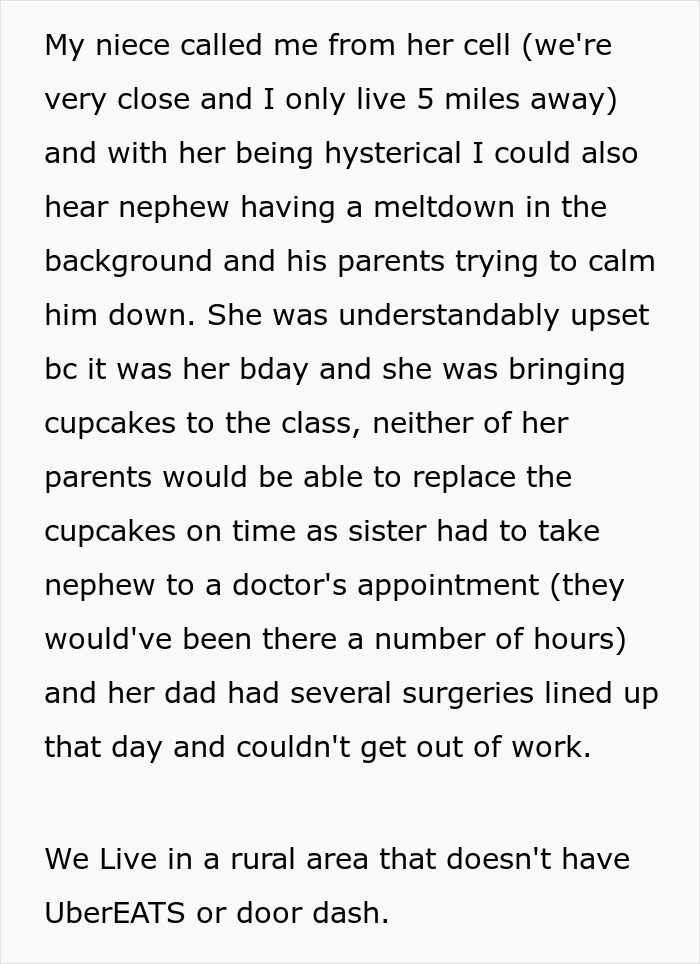

Image credits: Ksanochka (not the actual image)
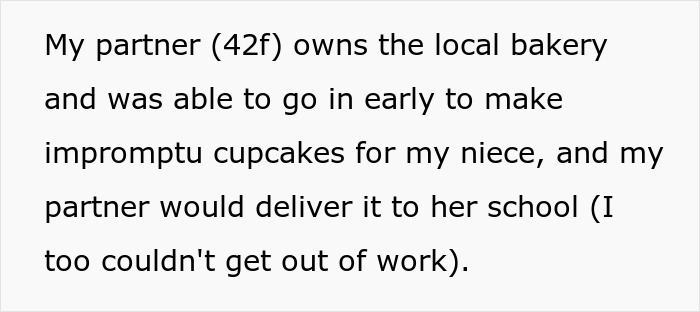
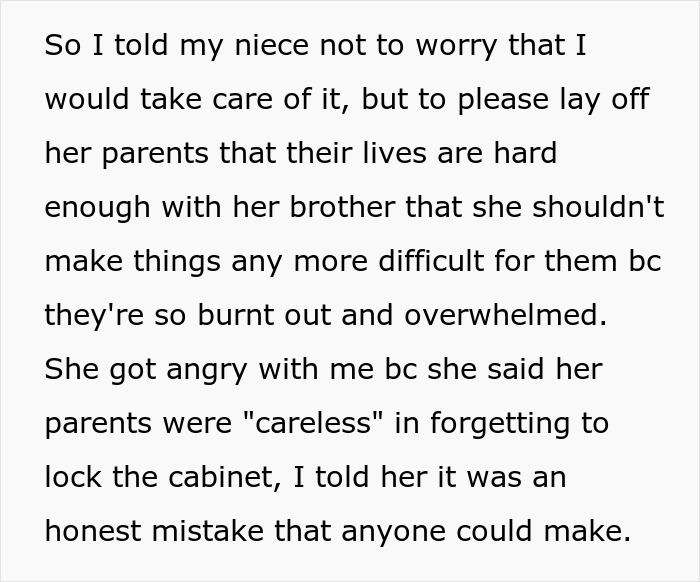
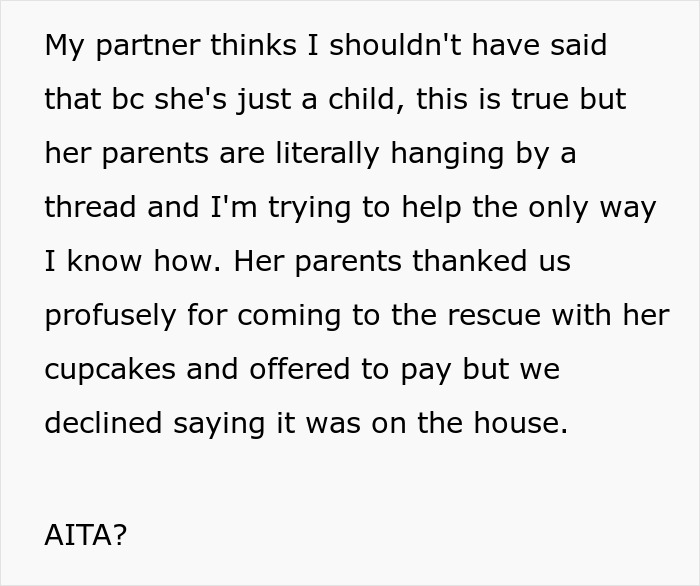
Image credits: Throwaway-Song-5954
Neurotypical siblings need social support, one-on-one time with their parents, and respect
Many neurotypical siblings are still children when they have to take on the role of a carer for their neurodivergent sibling. That’s why parents should inform them about autism but also respect them so they can be advocates for their sibling[s] on the spectrum.
Having a neurodivergent sibling can impact an individual both negatively and positively. Experts say that people who grew up with an ND sibling mature faster than their peers. They also grow up to be more compassionate, caring, tolerant, and empathetic. However, many neurotypical siblings report feeling left out, as their parents have to focus more of their time and effort toward the neurodivergent one.
Researchers have found that social support helps in mitigating that feeling. Whether it’s from parents, friends, or extended family, it can be a strong protective factor against stress and anxiety for neurotypical siblings. Psychologist Ashe Yee writes that parents should dedicate some quality one-on-one time to the neurotypical sibling. Playing a board game or going to the movie theater can be simple ways to make them feel seen. Peer support groups are also a good space for children to express their difficult but valid emotions.
Experts say that it’s normal for the sibling to want some time off from their neurodivergent brother or sister. Parents shouldn’t shame them for it or force the child to spend time with the ND sibling. It doesn’t necessarily mean they dislike them or don’t like spending time with them. Most times, it’s just the neurotypical kid wanting some “me time.”
The creator of Autism in the Museum, Lisa Jo Rudy, writes that parents need to show respect for the neurotypical child. “Treat all children with respect, and model respect for the autistic child.” Neurotypical children with an ND sibling learn from a very early age what it’s like to live with a person who’s on the autism spectrum. They learn about the importance of rules and routines when they’re little, and they might even teach their parents something.
The sibling relationship is very important, more so when one of them is neurodivergent
Sibling relationships are extremely important in a child’s development journey. A brother or sister is the first peer a child has. They learn how to socialize and how to navigate conflicts through contact with their sibling. For autistic children, playing and interacting with a neurotypical sibling can be very beneficial as well. Research shows that neurotypical older siblings positively impact the social skills of a child with ASD.
Atypical siblings have an important role in society as well. They act as ambassadors of the neurodivergent to be accepted into the community, Sofia Stigka, a child psychologist at Thrive Wellbeing Centre, writes. “They learn early on that behaviors that others may label as atypical – mannerisms, echolalia, vocalisations – are ways that an autistic child expresses their emotions and needs.”
At times, when a sibling with ASD may not be able to voice their needs, siblings can either help them do it or do it for them. Apex ABA Therapy writes that neurotypical siblings also empower their brother[s] or sister[s] to reach their full potential. “They can provide encouragement, motivation, and a sense of belief in their abilities. This support can have a profound impact on the self-esteem and confidence of individuals with autism.”
It’s true that neurotypical siblings are forced to grow up and mature earlier than other kids their age. They might need to assume the role of a carer when they’re still children themselves. Whether or not it’s fair on the neurotypical child is not a black-and-white issue. “This is a journey that does not come with a road map,” Stigka writes.
“[The girl’s] feelings are valid,” people in the comments said, calling out the woman for her insensitive behavior
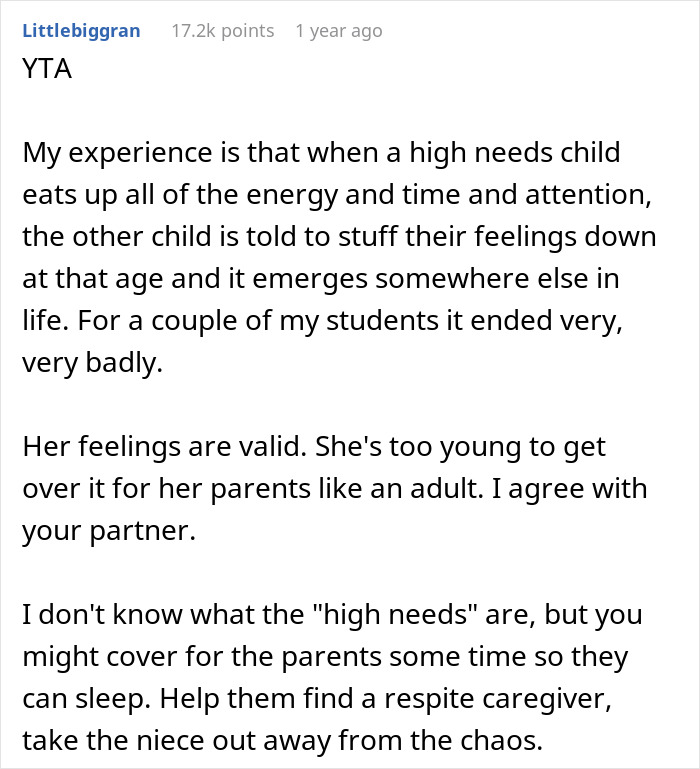
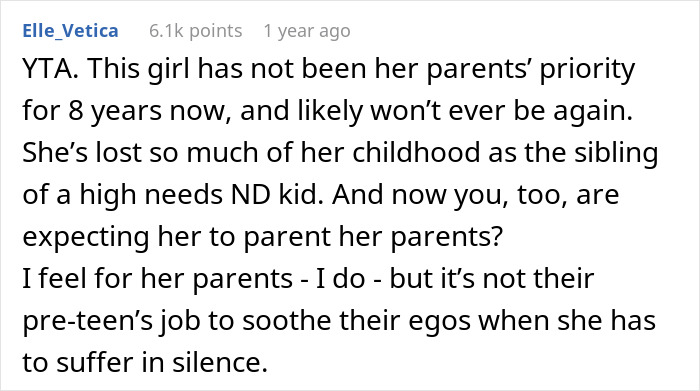

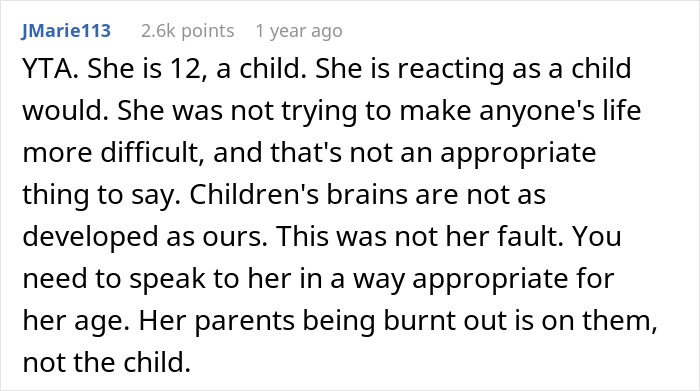
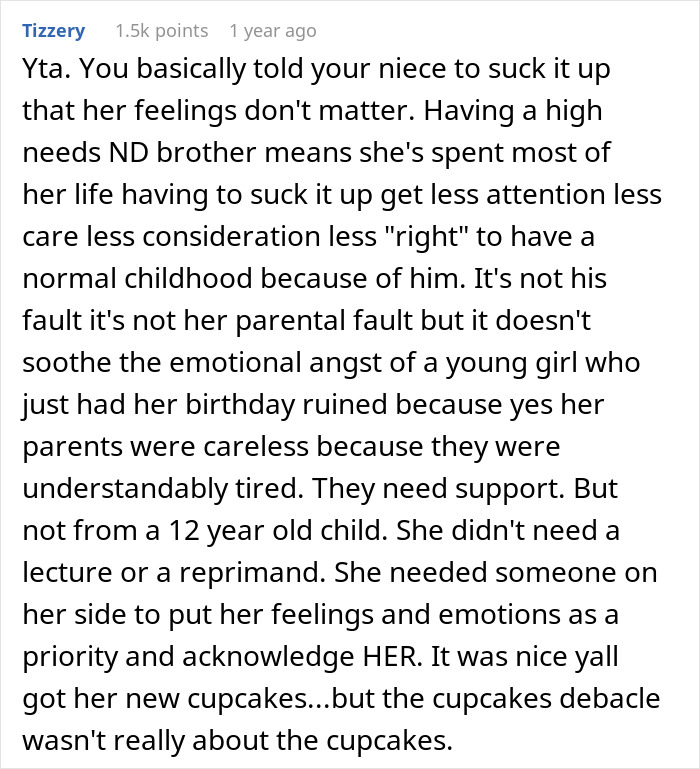
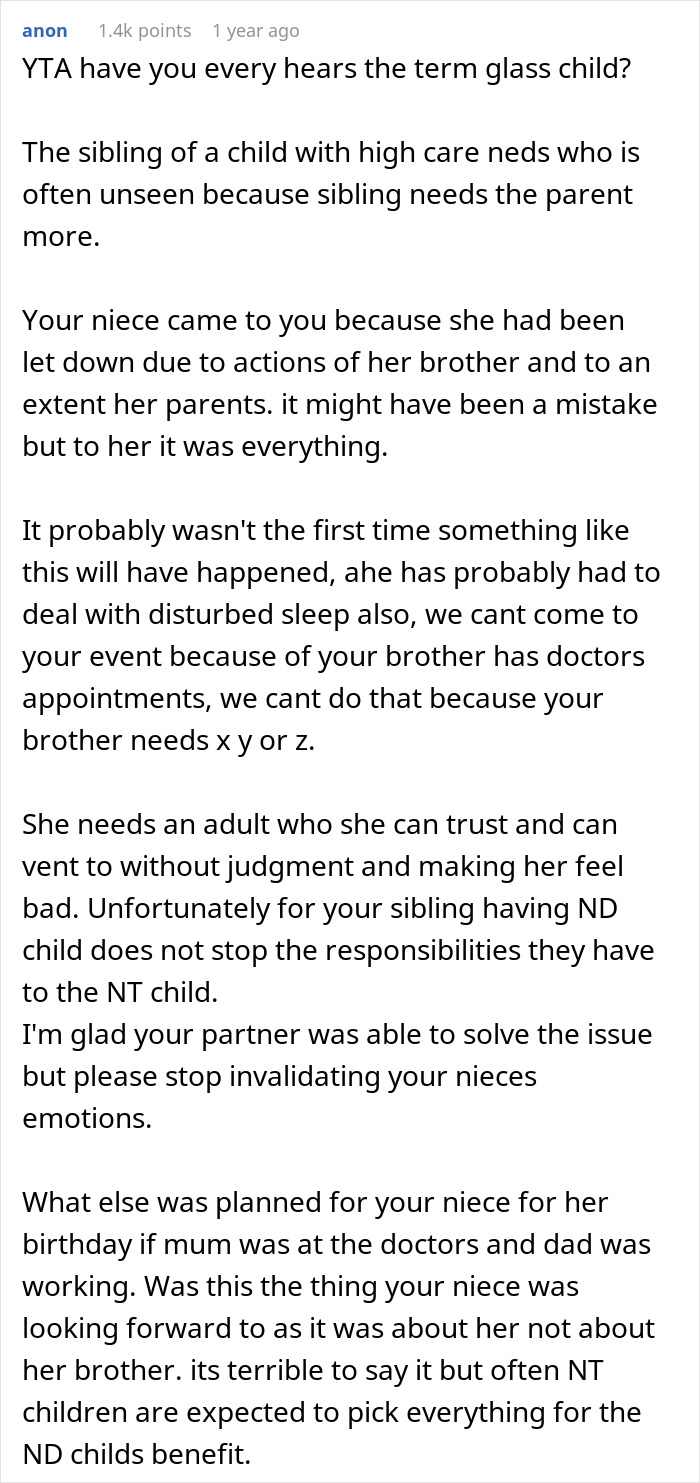
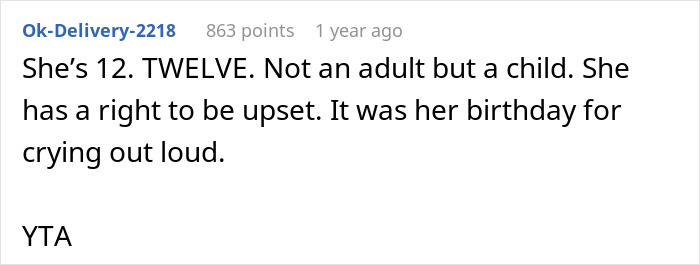
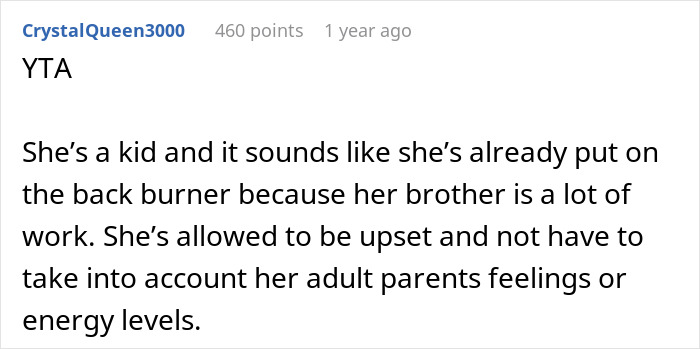
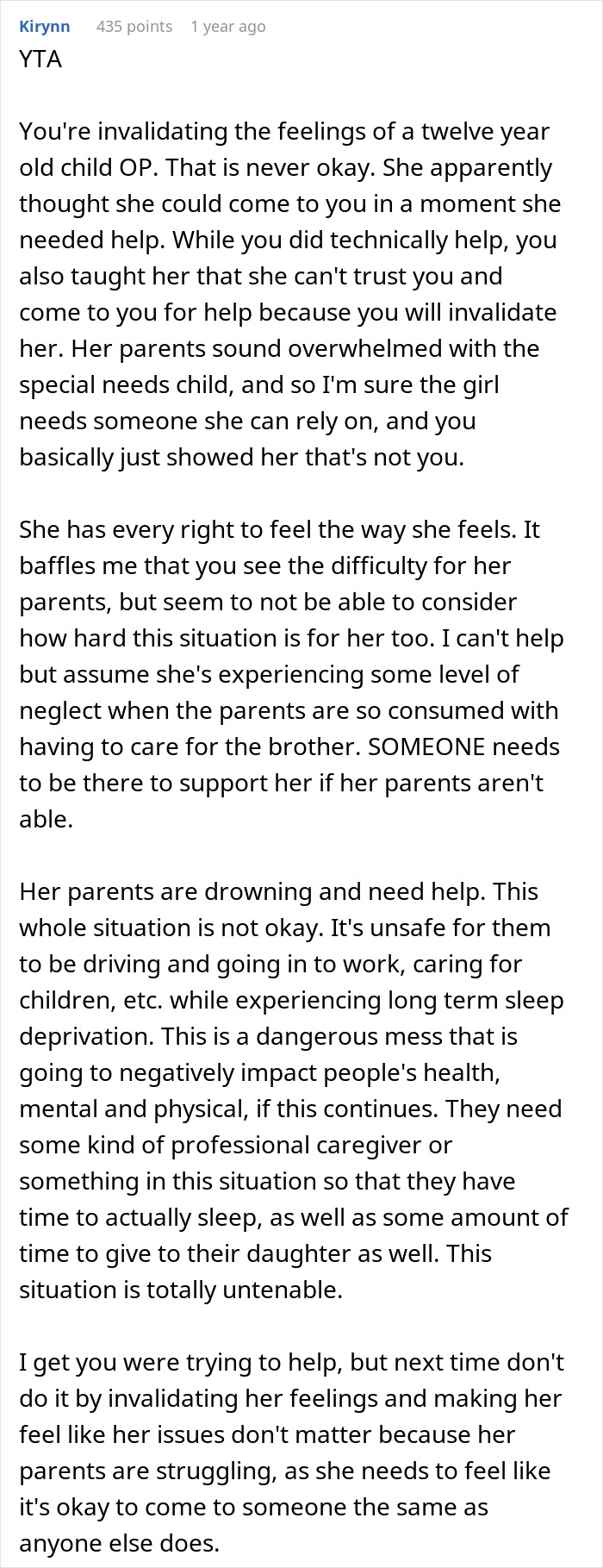

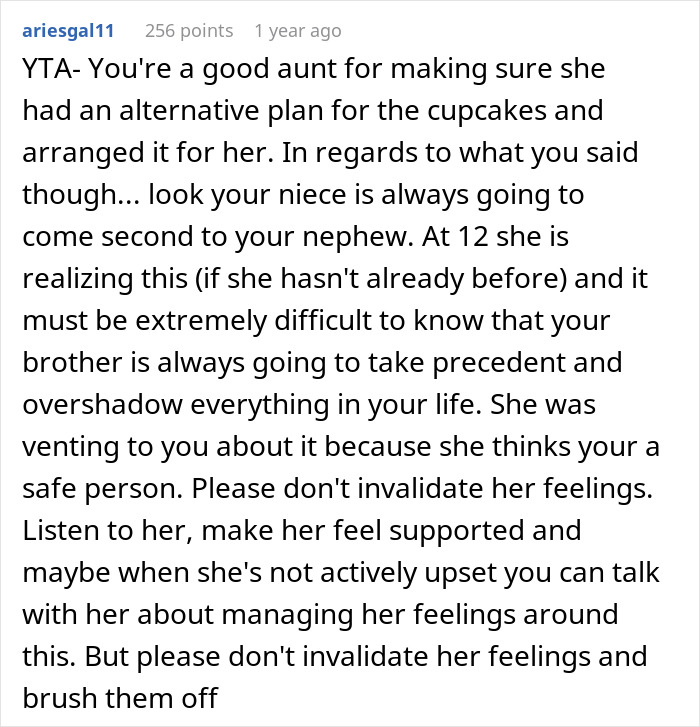
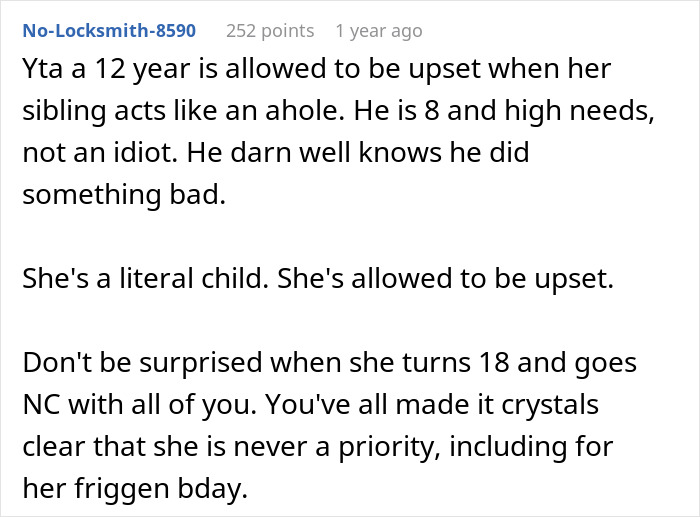
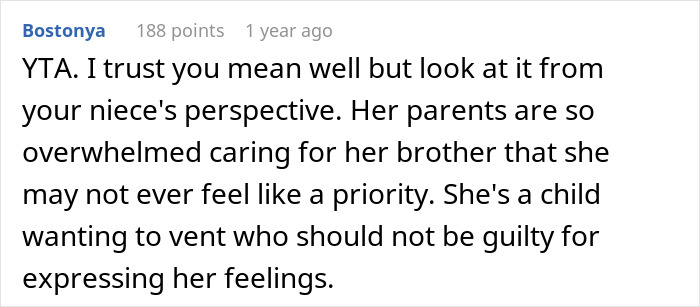
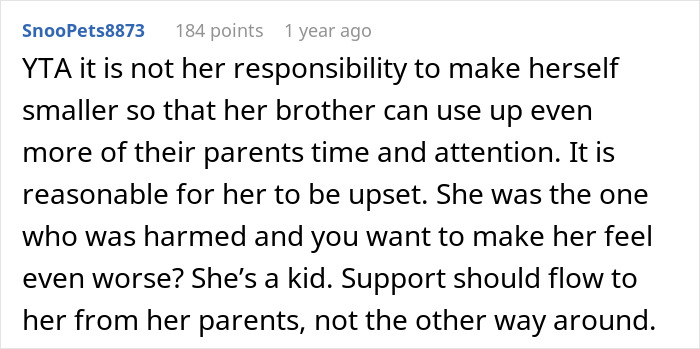
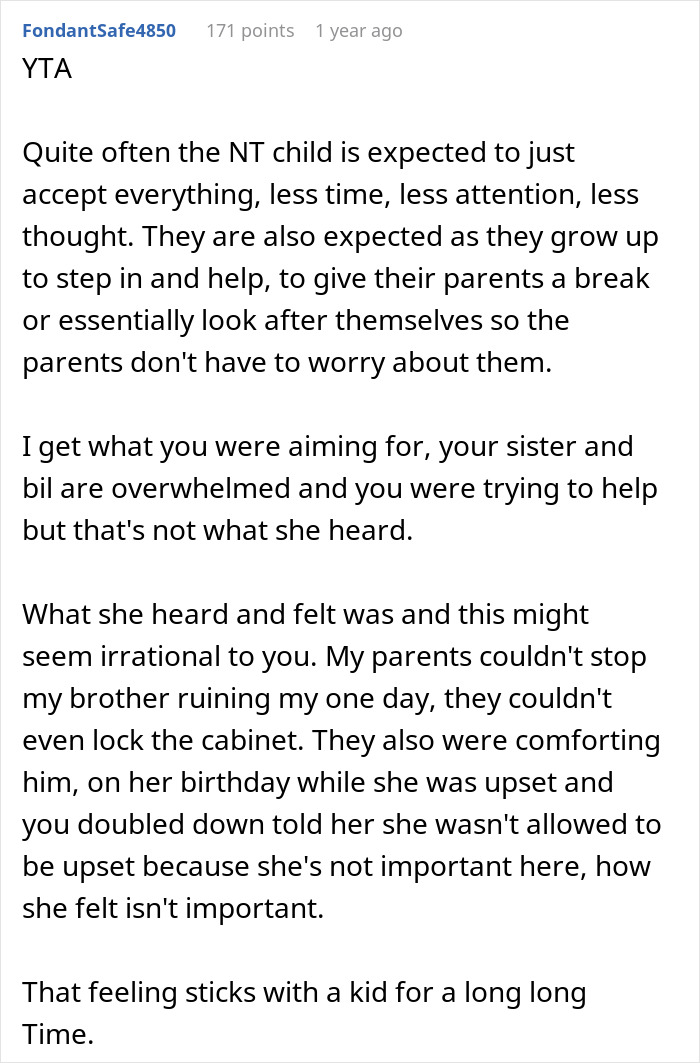
Others thought the aunt and the parents both sucked here

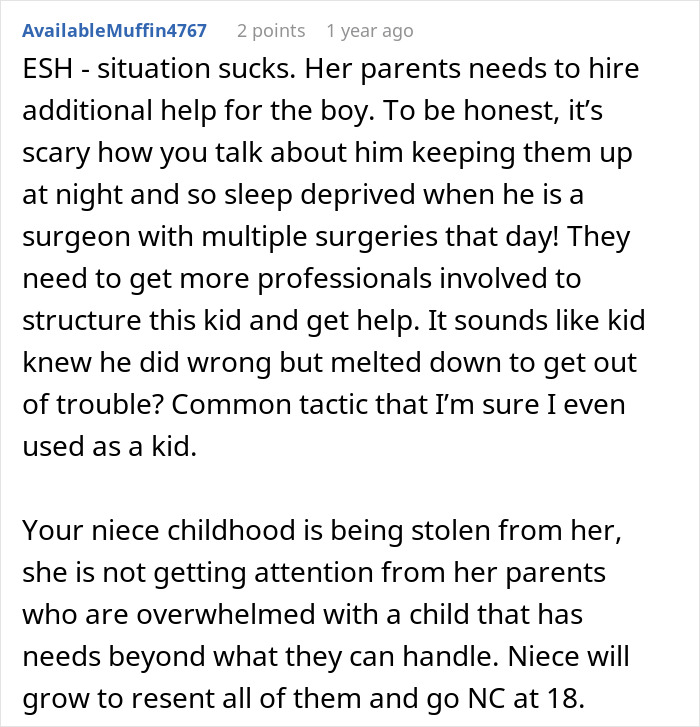
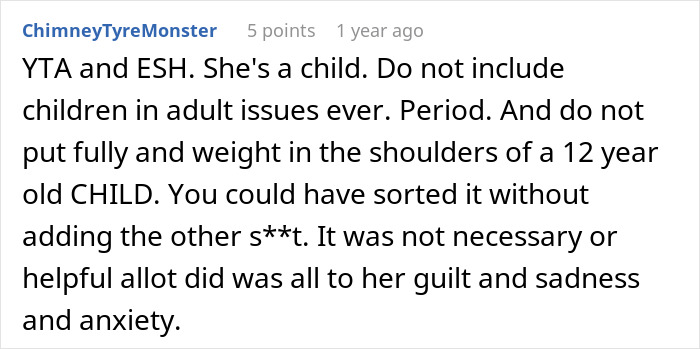
But there were some people who sided with the aunt as well
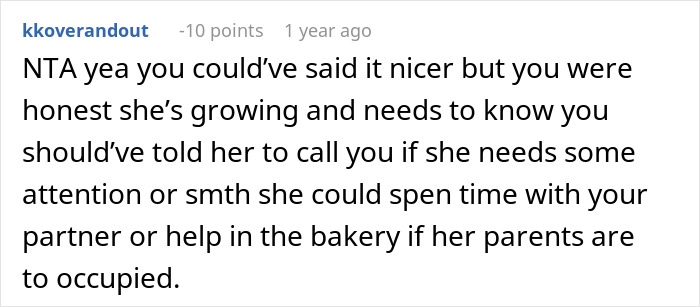

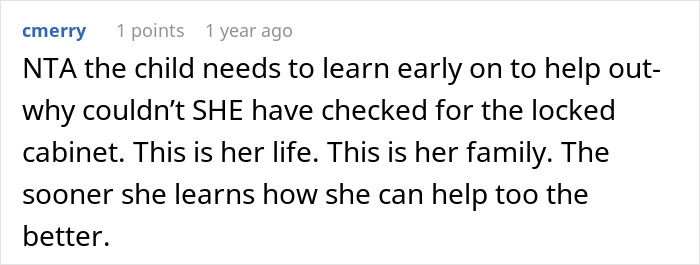
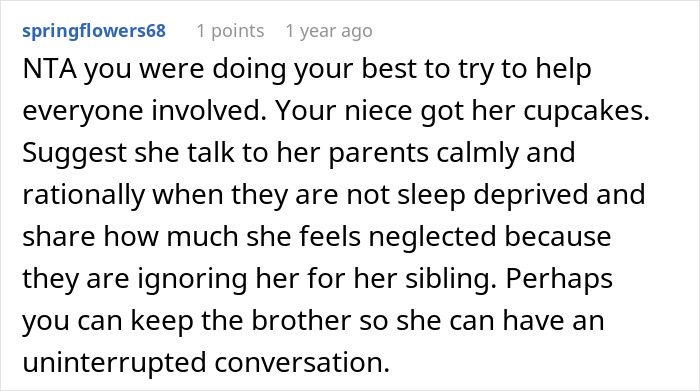
from Bored Panda https://ift.tt/1lJG3gR
via Boredpanda